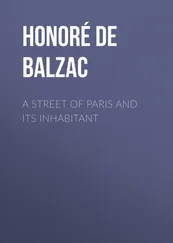Henry Edwards - Old and New Paris - Its History, Its People, and Its Places, v. 1
Здесь есть возможность читать онлайн «Henry Edwards - Old and New Paris - Its History, Its People, and Its Places, v. 1» — ознакомительный отрывок электронной книги совершенно бесплатно, а после прочтения отрывка купить полную версию. В некоторых случаях можно слушать аудио, скачать через торрент в формате fb2 и присутствует краткое содержание. Жанр: foreign_antique, foreign_prose, Путешествия и география, на английском языке. Описание произведения, (предисловие) а так же отзывы посетителей доступны на портале библиотеки ЛибКат.
- Название:Old and New Paris: Its History, Its People, and Its Places, v. 1
- Автор:
- Жанр:
- Год:неизвестен
- ISBN:нет данных
- Рейтинг книги:4 / 5. Голосов: 1
-
Избранное:Добавить в избранное
- Отзывы:
-
Ваша оценка:
- 80
- 1
- 2
- 3
- 4
- 5
Old and New Paris: Its History, Its People, and Its Places, v. 1: краткое содержание, описание и аннотация
Предлагаем к чтению аннотацию, описание, краткое содержание или предисловие (зависит от того, что написал сам автор книги «Old and New Paris: Its History, Its People, and Its Places, v. 1»). Если вы не нашли необходимую информацию о книге — напишите в комментариях, мы постараемся отыскать её.
Old and New Paris: Its History, Its People, and Its Places, v. 1 — читать онлайн ознакомительный отрывок
Ниже представлен текст книги, разбитый по страницам. Система сохранения места последней прочитанной страницы, позволяет с удобством читать онлайн бесплатно книгу «Old and New Paris: Its History, Its People, and Its Places, v. 1», без необходимости каждый раз заново искать на чём Вы остановились. Поставьте закладку, и сможете в любой момент перейти на страницу, на которой закончили чтение.
Интервал:
Закладка:
“This abuse springs from the nature of the legislation itself – more ready to preserve large fortunes than small. Let our new schemers say what they will, great proprietors are a nuisance in the State. They cover the lands with forests and stock them with fawns and deer; they lay out pleasure-gardens; and thus the oppression and luxury of the great is daily crushing the most unfortunate part of the community. In the year 1769 not only beggars, but even the poorer class of citizens were treated with much savage barbarity by secret orders from the Government. In the very dead of night old men, women, and children were suddenly seized upon, deprived of their liberty, and thrown into loathsome gaols, without the assignment of any cause for so cruel a treatment. The pretence was that indigence is the parent of crimes, that seditions generally begin among that class of people who, having nothing to lose, have nought to fear. The ministers who then wished to establish the corn-law dreaded the effect it would have on that world of indigent wretches, driven to despair, as they would be, by the advanced price of bread which was then to be imposed. Their oppressors said: ‘They must be smothered;’ and they were. As this was the most effectual method of silencing them, the Government never took the trouble to devise any other. When we cast an eye abroad, it is then we are convinced of the forlorn condition in which our lower sort of people drag out their miserable life. The Spaniard can cheaply provide himself with food and raiment. Wrapped up in his cloak, the earth is his bed; he sleeps soundly, and wakes without anxiety for his next meal. The Italians work little, and are in no want of the necessaries, or even luxuries, of life. The English, well fed, strong and hale, happy and free, reap and enjoy undisturbed the fruits of their industry. The Swede is content with his glass of brandy. The Russian, whom no foresight disturbs, finds abundance in the bosom of slavery; but the Parisians, poor and helpless, sinking under the burden of unremitting toils and fatigue, ever at the mercy of the great, who crush them like vile insects whenever they attempt to raise their voice, earn, at the sweat of their brow, a scanty subsistence, which only serves to lengthen their lives, without leaving them anything to look forward to in their old age but indigence, or, what is worse, part of a bed in the hospital.”
The Pont-Neuf was always crowded when anything was coming off on the neighbouring Place de Grève, where Ravaillac was tortured and torn to pieces, and where, in the next century, like horrors were perpetrated upon the body of Damiens, who had attacked Louis XV. with a pen-knife and inflicted upon him a slight scratch. The Place de Grève has now lost its old historic name, and is called the Place de l’Hôtel-de-Ville. In the open space where Ravaillac and Damiens were subjected to such abominable cruelty, and where so many criminals of various kinds and classes were afterwards to be broken and beaten to death, the guillotine was at a later date set up.
“The executioner in Paris,” says Mercier (writing just before the Revolution of 1789), “enjoys a revenue of no less than 18,000 livres (£720). His figure is perfectly well known to the populace; he is for them the greatest tragedian. Whenever he exhibits they crowd round his temporary stage: our very women, even those whom rank and education should inspire with the mildest sentiments, are not the last to share in the horrid spectacles he provides. I have seen some of these delicate creatures, whose fibres are so tender, so easily shaken, who faint at the sight of a spider, look unconcerned upon the execution of Damiens, being the last to avert their eyes from the most dreadful punishment that ever was devised to avenge an offended monarch. The bourreau , although his employment brands him with infamy, has no badge to distinguish him from the rest of the citizens; and this is a great mistake on the part of the Government, particularly noticeable when he executes the dreadful commands of the law. It is not only ridiculous: it is shocking in the extreme, to see him ascend the ladder, his head dressed and profusely powdered; with a laced coat, silk stockings, and a pair of as elegant pumps as ever set off the foot of the most refined petit-maître . Should he not be clad in garments more suitable to the minister of death? What is the consequence of so gross an absurdity? A populace not overburdened with the sense of sympathy are all taken up with admiration for the handsome clothes and person of our Breakbones. Their attention is engrossed by the elegant behaviour and appearance of this deputy of the King of Terrors; they have hardly a thought to bestow upon the malefactor, and not one on his sufferings. Of course, then, the intention of the law is frustrated. The dreadful example meant to frighten vice from its criminal course has no effect on the mind of the spectator, much more attentive to the point ruffles and the rich clothes of the man whose appearance should concur in adding to the solemnity than to the awful memento set up by a dire necessity to enforce the practice of virtue by showing that he who lives in crime must die in infamy. The executioner, from the stigma inherent to his profession, and of course to himself, cannot hope to form alliances among the other ranks of citizens. The very populace, though as well versed in the history of the hangman and the malefactors as the upper classes are in that of the sovereigns of Europe and their ministers, would think it a disgrace to intermarry with his family to the latest generation. It is not many years since the Bourreau of Paris publicly advertised that he was ready to bestow the hand of his daughter, with a portion of one hundred thousand crowns, on any native Frenchman who would accept it, and agree to succeed him in business. The latter clause would have staggered avarice itself; but the executioner of Paris was obliged to follow the practice of his predecessors in office, and marry his heiress to a provincial executioner. These gentlemen, in humble imitation of our bishops, take their surnames from the cities where they are settled, and among themselves it is ‘Monsieur de Paris,’ ‘Monsieur de Rouen,’ etc. etc.”
Besides breaking the bones of the criminals entrusted to his charge, torturing them in various ways, and ultimately putting them to death, the executioner, under the old régime, had sometimes to perform upon books, which he solemnly burnt on the Place de Grève. Russia, Turkey, and the Roman Court are now the only Powers in Europe which maintain a censorship over books. But the custom of burning objectionable volumes, instead of simply pronouncing against them and forbidding their circulation, belongs altogether to the past. Plenty of books were forbidden in France under the First and Second Empire; and when the infamous Marquis de Sade sent Napoleon one of his disgraceful works, the emperor replied by ordering the man to be arrested and confined in a lunatic asylum. Under the Restoration many a volume was proscribed; but since the great Revolution of 1789 no Government in France has ventured to restore the custom of having a condemned book burnt by the executioner. When, in connection with the contest on the subject of the Church’s relationship with the stage, a very able pamphlet was published, proving by the laws of France that the excommunication levelled against the stage was an illegal and scandalous imposition, it got condemned to be burnt in the Place de Grève by the executioner. Whereupon Voltaire, indignant at the barbarity of such a punishment, brought out, anonymously, another pamphlet in defence of the cremated one, when this, in its turn, was sentenced to the flames. Doubtless the writer foresaw the fate of his little volume, for the tract in question contained the suggestive remark that, “if the executioner were presented with a complimentary copy of every work he was ordered to burn, he would soon possess a handsome and very valuable library.”
Читать дальшеИнтервал:
Закладка:
Похожие книги на «Old and New Paris: Its History, Its People, and Its Places, v. 1»
Представляем Вашему вниманию похожие книги на «Old and New Paris: Its History, Its People, and Its Places, v. 1» списком для выбора. Мы отобрали схожую по названию и смыслу литературу в надежде предоставить читателям больше вариантов отыскать новые, интересные, ещё непрочитанные произведения.
Обсуждение, отзывы о книге «Old and New Paris: Its History, Its People, and Its Places, v. 1» и просто собственные мнения читателей. Оставьте ваши комментарии, напишите, что Вы думаете о произведении, его смысле или главных героях. Укажите что конкретно понравилось, а что нет, и почему Вы так считаете.












